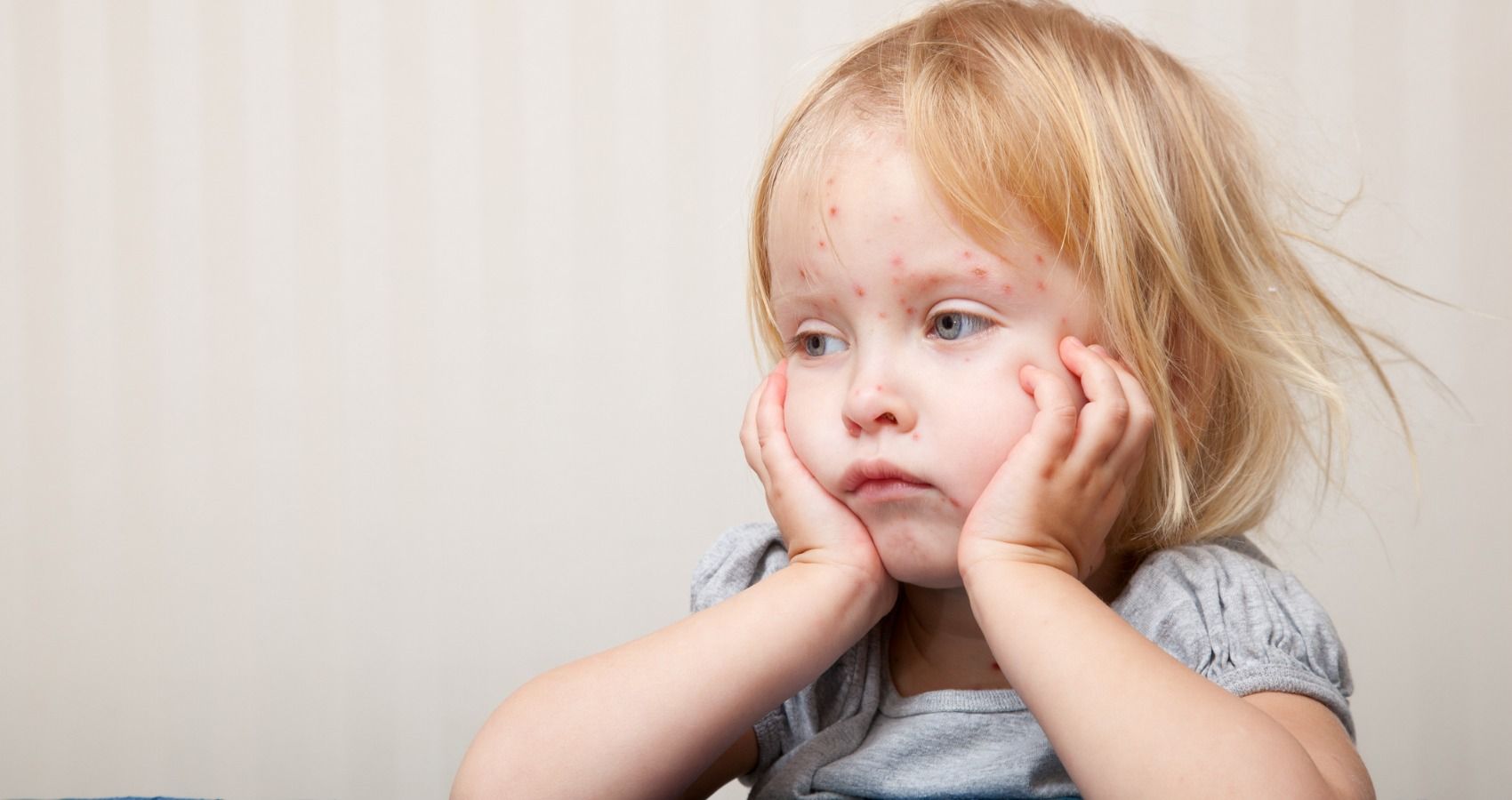Although it's flu season and most parents are busy ensuring their children have gotten their flu shot, the chickenpox is a common childhood virus that is highly contagious that all parents should know about. Although chickenpox typically affects children, adults can also contract the virus and the symptoms tend to be worse the older you are. Chickenpox usually has only mild effects but in more serious cases the complications can lead to hospitalization and even death. Here's everything you need to know about how to protect your child against the chickenpox.
What is Chickenpox?
Chances are you've had chickenpox at some point in your life, probably when you were a child. Chickenpox is a highly contagious disease that's caused by the varicella-zoster virus. The American Academy of Pediatrics states that chickenpox was so common that before the introduction of the vaccine in 1995 it had affected almost all children under the age of 9 years old. Although chickenpox most commonly affects children, adults can get it.
The disease is known for its telltale red blisters that develop all over the skin, and in some severe cases can even form inside the mouth, nose, eyes and even genitals.
What are the Symptoms?
The incubation period for the chickenpox is anywhere between 10 to 21 days, which means your child has probably exposed someone else by the time you realize they even have the chickenpox. At that time a red rash that could also look like blisters will appear on the skin, typically on the torso and scalp, before potentially spreading to the rest of the body. The blisters are very itchy and it's often difficult for children to resist the urge to scratch. Children are often at their most contagious between one and two days before their rash appears according to WebMD, and remain contagious until all of their blisters have dried up. Kids can also develop a mild fever alongside the itchy blisters.
“If you suspect that you or your child has chickenpox, consult your doctor,” advises Dr. Jyotir Jani a family physician at Piedmont Healthcare. “He or she can usually diagnose chickenpox by examining the rash and noting the presence of accompanying symptoms. "
Treatment
The AAP suggests giving your child acetaminophen (never aspirin) to your child if they do develop a fever, and bathe your child in an oatmeal bath or a warm bath to keep the itching to a minimum. They also suggest an antihistamine to help control the itching, which can get pretty severe. Many also suggest using an anti-itch cream like topical calamine lotion to help with the itching.
"Your doctor can also prescribe medications to lessen the severity of chickenpox and treat complications, if necessary," Dr. Jani states but warns parents to be vigilant when taking their child out in public. "Be sure to call ahead for an appointment and mention you think you or your child has chickenpox to avoid waiting and possibly infecting others in a waiting room.”
When to Call the Doctor?
Chickenpox is typically mildly annoying for children and their parents, but it's usually not a serious medical condition. In some cases, chickenpox can be serious to require hospitalization and can even result in death. Piedmont Healthcare suggests calling the doctor if your child has any of these symptoms.
- Confusion
- Difficulty waking up
- Fever above 102 degrees or that lasts more than four days
- Persistent vomiting
- Redness, bleeding, bruising, tenderness, warmth and/or pus anywhere on the body
- Severe abdominal pain
- Severe cough
- Stiff neck
- Trouble walking
- Trouble breathing
Prevention
Fortunately, there's a vaccine that can help prevent the chickenpox if not seriously reduce the symptoms associated with the disease. The varicella vaccine was introduced in 1995 and has greatly reduced the instances of chickenpox in children ever since. The vaccine has been found to be 95% effective according to the New England Journal of Medicine and can be given to children as soon as they turn one year old. The AAP recommends that children between the ages of 12 months and 12 years receive two doses of the vaccine, with the first dose coming between the ages of 12 and 15 months and the second between 4 and 6 years old.
Kids older than 13 and adults who were never vaccinated can still get the vaccine and will still get two doses, just at least 28 days apart. While the varicella vaccine is very safe, there are some people who shouldn't get it. Children under the age of 12 months, pregnant women, people with a weakened immune system and some people with severe allergies are advised against getting the vaccine, and therefore it's even more important for those who can get it to do so to increase herd immunity and keep those who can't get the vaccine safe.
Thanks to the varicella vaccine children no longer have to suffer through itchy, scratchy and sometimes painful blisters as they wait for the disease to run its course, but if they do contract the disease at least there are ways to help alleviate the symptoms and make them more comfortable.
Read More: Chickenpox Outbreak In School Where Parents Choose Not To Vaccinate

